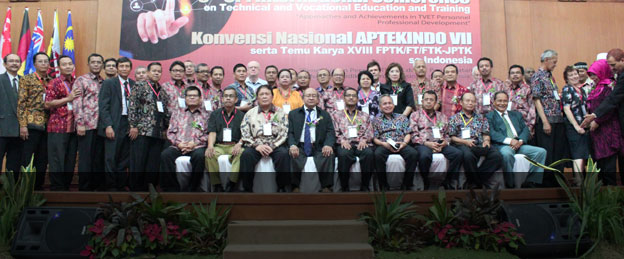Full issue 4
East and Southeast Asia are experiencing a rapid pace of economic development that call for continuous review of education and training systems. TVET reform processes at the national and regional levels are addressing the question of quality and standards. During the past decades a vast variety of different approaches in TVET were developed or introduced. These approaches were often inspired through transfer or adoption from other regions of the world. In consequence, a vast variety of TVET-systems were implemented in different countries in the region and may require continues review and adaptation. Some states have no coherent national TVET-system with a common underlying concept of quality. A vast variety of TVET approaches consequently employ different concepts of quality and quality management in TVET.

Dr.Wei Keh Chin
Director/Adjunct Senior Lecturer
Universiti Brunei Darussalam
Institute of Brunei Technical Education
Brunei Darussalam
Issue 4, Issue 8
Field of expertise/main research projects:
CHIN Wei Keh is currently the Director of the Institute of Brunei Technical Education, Brunei Darussalam. He leads the team in the transformation of the vocational and technical education in Brunei. The transformation is one of the 3 pillars of 21st Century Education System (SPN21) of the Ministry of Education. He is also an adjunct Senior Lecturer at the graduate school of education, Sultan Hassanal Bolkiah Institute of Education (SHBIE), Universiti Brunei Darussalam (UBD). He is familiar with learning and teaching methodologies for both fresh graduate and adult learners. His current research interests are aspect relating to Vocational and Technical Education especially on curriculum, program evaluation, graduates’ tracer study and career guidance as well as Innovative teaching and learning in the 21st Century (LEAP 21) and the Creative industries. He believes that research is one of the main pillars to achieving quality vocational and technical education and one of his goals is to inculcate research culture into the vocational and technical education ecosystem in Brunei Darussalam.


